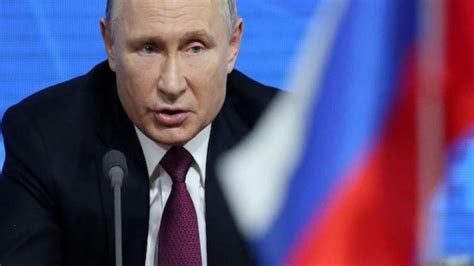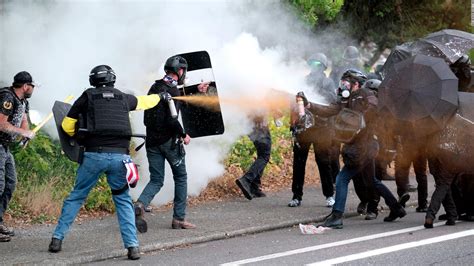
Finnish President Sauli Niinistö has characterized Russian President Vladimir Putin’s invasion of Ukraine as a “massive strategic blunder,” arguing that the conflict has significantly weakened Russia’s position on the international stage and bolstered Western unity.
Speaking recently, Niinistö asserted that Putin’s gamble in Ukraine has backfired, leading to a more unified and determined West, a strengthened NATO, and a diminished Russia. “I think it’s quite obvious that it was a massive strategic blunder,” Niinistö stated. “Instead of weakening the West, he got the West more united. Instead of having a weaker NATO, he has a much stronger NATO, and, what is most important, he has a totally different Finland,” referring to Finland’s historic decision to join the North Atlantic Treaty Organization in response to Russia’s aggression.
Niinistö’s comments come as the war in Ukraine grinds into its second year, with no clear end in sight. While Russia has made incremental gains in some areas, its military has suffered significant losses in personnel and equipment. The war has also triggered unprecedented sanctions from Western nations, crippling the Russian economy and isolating Moscow from the international community.
Finland, which shares a long border with Russia, has historically maintained a policy of neutrality. However, Russia’s invasion of Ukraine prompted a dramatic shift in public opinion, with overwhelming support for NATO membership. Finland officially joined NATO in April 2023, effectively doubling the alliance’s border with Russia and significantly enhancing its security posture in the Baltic Sea region.
Niinistö emphasized that Finland’s decision to join NATO was a direct result of Russia’s actions. He stated that the war in Ukraine had fundamentally altered the security landscape in Europe, leaving Finland with no alternative but to seek the protection of the alliance.
The Finnish president also expressed concern about the long-term implications of the conflict for Russia itself. He argued that the war has not only damaged Russia’s international standing but also undermined its domestic stability. “I think Russia is in a very difficult situation,” Niinistö said. “The war is not going as planned, and the economic consequences are severe.”
Niinistö’s assessment echoes the views of many Western leaders and analysts, who believe that Putin’s decision to invade Ukraine was a grave miscalculation with far-reaching consequences. The war has not only caused immense suffering and destruction in Ukraine but has also reshaped the geopolitical landscape, accelerating the decline of Russia’s influence and strengthening the resolve of the West to defend its values and interests.
The Strategic Miscalculation
The central tenet of Niinistö’s argument revolves around the idea that Putin’s strategic objectives in Ukraine have not only failed to materialize but have also produced outcomes diametrically opposed to those intended. Russia’s initial goals were widely believed to include the swift overthrow of the Ukrainian government, the installation of a pro-Russian regime in Kyiv, and the prevention of Ukraine’s further integration with the West, particularly its aspirations to join NATO.
However, the Ukrainian military, bolstered by Western arms and training, mounted a fierce and unexpectedly effective resistance, thwarting Russia’s initial offensive and forcing Moscow to recalibrate its war aims. The war quickly devolved into a protracted conflict, characterized by intense fighting, heavy casualties, and widespread destruction.
The war also had profound consequences for European security. Prior to the invasion, there were varying opinions within NATO regarding the level of threat posed by Russia. Some member states, particularly those in Western Europe, favored a more conciliatory approach, emphasizing dialogue and economic cooperation. However, Russia’s aggression shattered this consensus, galvanizing support for a stronger and more unified defense posture.
Finland’s NATO Membership: A Paradigm Shift
Finland’s decision to abandon its long-standing policy of neutrality and join NATO represents a seismic shift in European security dynamics. For decades, Finland had carefully navigated the complex geopolitical landscape, maintaining a pragmatic relationship with its powerful neighbor while also fostering close ties with the West. This policy of neutrality was rooted in historical experience, including the Winter War of 1939-1940, in which Finland successfully defended its independence against a Soviet invasion, albeit at a significant cost.
However, Russia’s invasion of Ukraine fundamentally altered Finland’s threat perception. The Finnish public, traditionally cautious about NATO membership, underwent a dramatic change of heart, with polls showing overwhelming support for joining the alliance. This shift was driven by a growing sense of insecurity and a recognition that Russia’s actions in Ukraine posed a direct threat to Finland’s own security.
Finland’s accession to NATO significantly enhances the alliance’s military capabilities in the Baltic Sea region. Finland possesses a well-trained and well-equipped military, including a substantial reserve force, and its long border with Russia provides NATO with a significant strategic advantage. Moreover, Finland’s membership strengthens NATO’s ability to deter Russian aggression in the region and to respond effectively to any potential threats.
Economic Repercussions for Russia
The economic consequences of the war in Ukraine for Russia have been severe and far-reaching. Western nations have imposed unprecedented sanctions on Russia, targeting its financial institutions, energy sector, and key industries. These sanctions have had a significant impact on the Russian economy, leading to a sharp decline in GDP, a surge in inflation, and a disruption of supply chains.
The sanctions have also limited Russia’s access to international financial markets, making it more difficult for the country to raise capital and finance its debt. The exodus of foreign companies from Russia has further exacerbated the economic downturn, depriving the country of investment, technology, and expertise.
The long-term economic consequences of the war for Russia are likely to be even more profound. The country’s economy is heavily dependent on exports of oil and gas, and the sanctions have made it more difficult for Russia to sell these commodities to international markets. This has led to a decline in government revenues and a squeeze on public spending.
Moreover, the war has damaged Russia’s reputation as a reliable trading partner, making it more difficult for the country to attract foreign investment in the future. The brain drain of skilled workers and professionals from Russia is also likely to have a negative impact on the country’s long-term economic prospects.
Domestic Instability in Russia
Niinistö’s comments about domestic instability in Russia reflect growing concerns among Western observers about the potential for internal unrest in the country. The war in Ukraine has exposed deep divisions within Russian society, with some segments of the population questioning the rationale for the conflict and expressing concern about the rising death toll and economic hardship.
The Russian government has responded to these concerns by tightening its control over the media and suppressing dissent. However, there have been sporadic protests against the war in various parts of the country, and there is evidence that support for Putin and his policies is waning.
The economic consequences of the war are likely to exacerbate these tensions, as ordinary Russians struggle with rising prices, job losses, and declining living standards. The war has also exposed corruption and inefficiency within the Russian military and government, further eroding public trust in the authorities.
While it is difficult to predict the future course of events in Russia, there is a growing risk of political instability and social unrest. The war in Ukraine has created a perfect storm of economic hardship, political repression, and social division, which could ultimately undermine Putin’s grip on power.
The Future of the Conflict
The war in Ukraine shows no signs of abating, and the conflict is likely to continue for the foreseeable future. Russia has demonstrated a willingness to expend vast resources and manpower in pursuit of its objectives, and it is unlikely to back down without achieving some form of victory.
Ukraine, on the other hand, is determined to defend its sovereignty and territorial integrity, and it continues to receive substantial military and financial assistance from the West. The war has become a proxy conflict between Russia and the West, with both sides vying for influence and control in the region.
The long-term consequences of the conflict are difficult to predict, but it is clear that the war has fundamentally altered the geopolitical landscape. The conflict has accelerated the decline of Russia’s influence and strengthened the resolve of the West to defend its values and interests. It has also led to a major realignment of alliances and partnerships, with countries like Finland and Sweden abandoning their neutrality and joining NATO.
The war in Ukraine is a tragedy for all involved, and it serves as a stark reminder of the dangers of aggression and the importance of international cooperation. The international community must continue to support Ukraine in its fight for freedom and independence, and it must work to hold Russia accountable for its actions.
Frequently Asked Questions (FAQ)
1. Why does President Niinistö consider Putin’s Ukraine war a “massive strategic blunder”?
President Niinistö believes the war is a strategic blunder because it has achieved the opposite of what Putin likely intended. Instead of weakening the West, it has united it; instead of weakening NATO, it has strengthened it with the addition of Finland and Sweden; and it has significantly damaged Russia’s international standing and economy.
2. How has the Ukraine war affected Finland’s security policy?
The war prompted a dramatic shift in Finland’s security policy. Historically neutral, Finland decided to join NATO in response to Russia’s aggression, seeking the alliance’s protection due to the altered security landscape in Europe.
3. What impact has Finland’s NATO membership had on the alliance?
Finland’s membership significantly enhances NATO’s military capabilities in the Baltic Sea region. Finland possesses a well-trained and equipped military and shares a long border with Russia, providing NATO with a strategic advantage and strengthening its deterrence capabilities.
4. What are the economic consequences of the Ukraine war for Russia, according to President Niinistö’s assessment?
Niinistö suggests that the war has severe economic consequences for Russia. The sanctions imposed by Western nations have crippled the Russian economy, leading to a decline in GDP, rising inflation, and limited access to international financial markets. These factors are expected to have profound long-term impacts on Russia’s economic prospects.
5. What are the potential risks of domestic instability in Russia as a result of the war, according to the analysis?
The war has exposed divisions within Russian society, leading to concerns about potential domestic instability. Economic hardship, coupled with government repression and public dissatisfaction with the war, could erode public trust in the authorities and potentially lead to political unrest.
In-Depth Analysis and Expanded Context:
The Pre-War Geopolitical Landscape:
Prior to the 2022 invasion of Ukraine, the relationship between Russia and the West was already strained. The 2014 annexation of Crimea and the ongoing conflict in the Donbas region had led to sanctions and a freeze in diplomatic relations. However, there were still channels for dialogue and cooperation, particularly in areas such as energy and arms control.
Russia viewed NATO’s eastward expansion as a direct threat to its security interests. Putin had repeatedly expressed concerns about the alliance’s military presence near Russia’s borders and accused NATO of encircling the country. He argued that NATO expansion violated assurances given to Soviet leaders during the dissolution of the Warsaw Pact.
The United States and its allies, on the other hand, maintained that NATO was a defensive alliance and that each country had the sovereign right to choose its own security arrangements. They rejected Russia’s demands for a guarantee that Ukraine would never join NATO.
In the months leading up to the invasion, diplomatic efforts were underway to de-escalate tensions. However, these efforts ultimately failed, as Russia refused to withdraw its troops from the Ukrainian border and continued to issue increasingly bellicose statements.
The War’s Impact on European Security:
The war in Ukraine has had a transformative impact on European security. It has shattered the post-Cold War order and ushered in a new era of geopolitical competition. The conflict has also exposed vulnerabilities in Europe’s defense architecture and highlighted the need for greater investment in military capabilities.
One of the most significant consequences of the war has been the revival of NATO. The alliance, which had been struggling to find a new purpose after the end of the Cold War, has been reinvigorated by the Russian threat. NATO members have increased their defense spending, deployed more troops to Eastern Europe, and strengthened their collective defense arrangements.
The war has also led to a reassessment of European energy security. Many European countries had become heavily reliant on Russian gas, making them vulnerable to political pressure from Moscow. The war has prompted efforts to diversify energy sources and reduce dependence on Russian supplies.
Russia’s Military Performance and Strategic Adjustments:
Russia’s military performance in Ukraine has been widely criticized. The initial offensive was poorly planned and executed, and Russian forces suffered heavy losses. The Ukrainian military, armed with Western weapons and motivated by a strong sense of national identity, put up a fierce resistance.
Russia has since adjusted its military strategy, focusing on consolidating its control over occupied territories in eastern and southern Ukraine. The conflict has become a war of attrition, with both sides digging in for a long and bloody struggle.
The war has also exposed weaknesses in Russia’s military capabilities. Russian forces have struggled with logistics, communications, and coordination. They have also been hampered by corruption and poor leadership.
The Humanitarian Crisis:
The war in Ukraine has triggered a major humanitarian crisis. Millions of Ukrainians have been displaced from their homes, seeking refuge in neighboring countries or in safer parts of Ukraine. The war has also caused widespread destruction of infrastructure, including homes, schools, and hospitals.
The international community has provided humanitarian assistance to Ukraine, but the scale of the crisis is overwhelming. The United Nations estimates that millions of Ukrainians are in need of humanitarian aid.
The war has also raised concerns about war crimes and human rights violations. There have been numerous reports of atrocities committed by Russian forces, including summary executions, torture, and sexual violence.
The Role of Western Sanctions:
Western sanctions have had a significant impact on the Russian economy. The sanctions have targeted Russia’s financial institutions, energy sector, and key industries. They have also restricted Russia’s access to international financial markets.
The sanctions have led to a sharp decline in GDP, a surge in inflation, and a disruption of supply chains. They have also made it more difficult for Russia to finance its war effort.
However, the sanctions have not been without their drawbacks. They have also had an impact on Western economies, leading to higher energy prices and disruptions to trade.
The Future of Russia-West Relations:
The war in Ukraine has fundamentally altered the relationship between Russia and the West. The conflict has shattered trust and deepened animosity. It is difficult to see how relations can return to normal in the foreseeable future.
The war has also raised questions about the future of the international order. Russia’s actions have challenged the principles of sovereignty, territorial integrity, and the rule of law. The international community must work to uphold these principles and to hold Russia accountable for its actions.
Long-Term Implications for Global Geopolitics
The reverberations of the Ukraine conflict extend far beyond the immediate theater of war, impacting global geopolitical dynamics in multifaceted ways:
-
Realignment of Global Power: The conflict has accelerated the shift in the global balance of power. While the United States remains the dominant superpower, the rise of China as a major economic and military power continues. The war has also highlighted the importance of regional powers, such as India and Turkey, which have sought to navigate the conflict while pursuing their own interests.
-
Reshaping of Alliances and Partnerships: The war has prompted a reassessment of alliances and partnerships around the world. Countries that were previously neutral or non-aligned have been forced to take sides. The conflict has also strengthened existing alliances, such as NATO, and created new partnerships among countries that share common security concerns.
-
Increased Military Spending: The war has led to a surge in military spending around the world. Countries are investing in new weapons systems, modernizing their armed forces, and bolstering their defense capabilities. This trend is likely to continue for the foreseeable future, as countries seek to deter aggression and protect their national interests.
-
Cyber Warfare and Information Operations: The war has highlighted the growing importance of cyber warfare and information operations. Both Russia and Ukraine have engaged in cyberattacks against each other’s critical infrastructure, and both sides have used social media to spread propaganda and disinformation.
-
Global Food Security: The war has disrupted global food supply chains, leading to higher food prices and increased food insecurity, particularly in developing countries. Ukraine is a major exporter of grain and other agricultural products, and the war has disrupted planting, harvesting, and transportation.
-
Energy Security and Transition: The war has accelerated the transition to renewable energy sources. European countries are seeking to reduce their dependence on Russian gas and oil, and they are investing in solar, wind, and other renewable energy technologies.
-
Impact on International Law and Institutions: Russia’s invasion of Ukraine has undermined international law and the authority of international institutions, such as the United Nations. The conflict has highlighted the need for stronger mechanisms to enforce international law and to hold states accountable for their actions.
The Human Cost:
Beyond the geopolitical ramifications, the Ukraine war has inflicted immense human suffering:
-
Loss of Life: The conflict has resulted in the deaths of tens of thousands of soldiers and civilians. The actual number of casualties is likely to be much higher than official estimates.
-
Displacement and Refugee Crisis: Millions of Ukrainians have been displaced from their homes, creating a massive refugee crisis. Neighboring countries have struggled to cope with the influx of refugees, and many Ukrainians have been forced to live in temporary shelters or with host families.
-
Psychological Trauma: The war has had a profound psychological impact on Ukrainians, particularly children. Many people have witnessed violence, lost loved ones, and been forced to flee their homes. The trauma of war can have long-lasting consequences, leading to mental health problems and difficulties in coping with daily life.
-
Economic Hardship: The war has devastated the Ukrainian economy, leading to job losses, business closures, and widespread poverty. Many Ukrainians have lost their livelihoods and are struggling to provide for their families.
-
Destruction of Infrastructure: The war has caused widespread destruction of infrastructure, including homes, schools, hospitals, and factories. The rebuilding of Ukraine will require a massive investment of resources and will take many years.
Conclusion:
President Niinistö’s assessment that Putin’s Ukraine war is a “massive strategic blunder” is supported by the evidence. The war has not only failed to achieve its intended objectives but has also produced outcomes that are detrimental to Russia’s interests. The conflict has united the West, strengthened NATO, damaged Russia’s economy, and undermined its international standing.
The war in Ukraine is a tragedy with far-reaching consequences. It has shattered the post-Cold War order, reshaped global alliances, and inflicted immense human suffering. The international community must continue to support Ukraine in its fight for freedom and independence and must work to hold Russia accountable for its actions. The conflict serves as a stark reminder of the dangers of aggression and the importance of upholding international law and the principles of sovereignty and territorial integrity. The long-term ramifications of this war will continue to shape the global landscape for decades to come.









